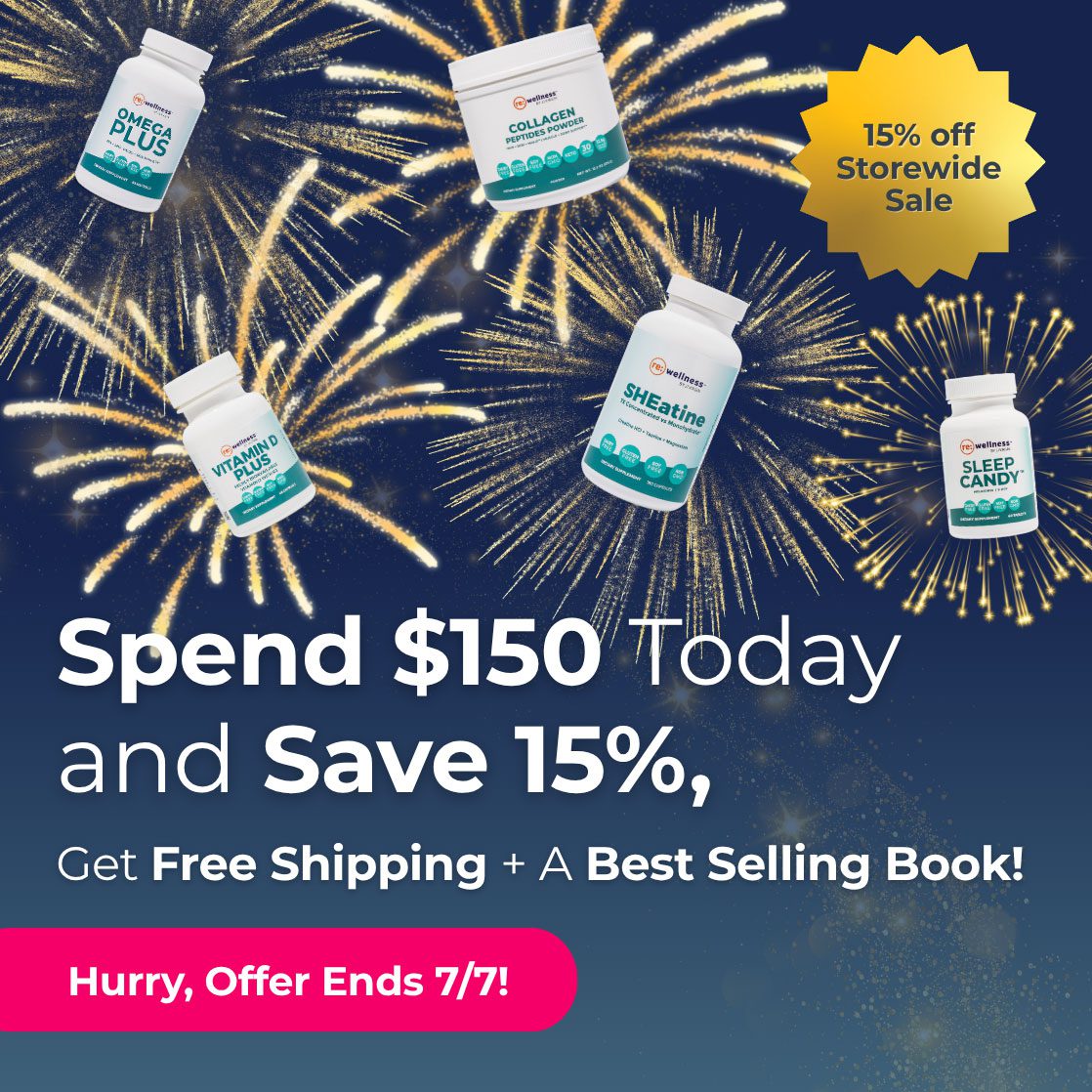The first few days of your diet are going great.
Your fridge is full of clean, lean protein and high-fiber veggies. You tossed all the sugary cereal and processed snack packs. Now their spot in the pantry is occupied by protein powder and fiber for your morning shakes. So far, so good!
And then come the cravings. Maybe a well-meaning coworker offers you a homemade brownie. Or the grocery store stocks the sparkling water right next to your old bestie, Diet Coke. Suddenly, you’re considering going to the movies just so you can eat popcorn and candy in the dark…
You’re Not Alone
We’ve all been there! Nothing can derail a new diet faster than intense cravings.
Believe it or not, those cravings are actually a good sign: they mean your body is saying goodbye to the last of the harmful antibodies it produced in response to your old way of eating.
While that knowledge might bring you a little comfort, what you really need is reinforcements. Enter L-glutamine, one of my favorite multitaskers. This powerful supplement can support your body’s natural ability to:
- Fight cravings, especially for sugar and alcohol1
- Build muscle and burn fat2
- Protect your digestive tract3, including heal stomach ulcers4 and leaky gut5
- Strengthen your immune system and detox on a cellular level6
- Balance blood sugar, improving common type 2 diabetes symptoms7
L-glutamine can also help diminish risk for cardiovascular disease8 and improve health during cancer treatment9.* You can see what I mean about multitasking! Adding L-glutamine to your diet can be a big win.
How does it work?
L-glutamine is an amino acid, one of the building blocks of protein. Your body already produces it in large quantities to help maintain multiple important systems.
However, it’s still known in the science world as “conditionally essential.” In other words, L-glutamine is crucial to so many functions that we may need to supplement to ensure we can digest food, fight disease, and regulate our blood sugar properly.
Supplementing with L-glutamine is especially helpful for people living with chronic stress, illness, or inflammation.* (And let’s be honest, who isn’t affected by at least one of those at some point?)
That’s because your body’s response to emotional or physical stress of any kind is to release the hormone cortisol. Cortisol depletes your body’s natural supply of glutamine, making it harder to lose weight and stay healthy. It’s no coincidence that you find yourself getting sick or adding extra pounds during the most stressful times in your life!
Without L-glutamine, your body loses one of its strongest natural defenses against infection, as well as the ability to burn fat and build muscle. The last thing you want to do is spend your resources on exercise or healthy meals that your body can’t use effectively!
Bottom line…
The real question is this: why wouldn’t you take a supplement that can potentially assist with fat loss, keep your gut and immune system healthy, and help you avoid heart disease and diabetes?*
Of course, as with all supplements, quality counts! Try this high-quality, gluten- and dairy-free L-glutamine powder. Simply stir 5 grams into the drink of your choice for quick help with cravings.
It’s important to take L-glutamine in powder form because the amount required just isn’t practical otherwise. (Think 10-20 capsules a day…)
Looking for an easy, diet-friendly recipe that uses L-glutamine powder? Check out my Lemon-Aid below. What started as a summertime standard has become a crave-quenching favorite all year round.
No single supplement can do it all. But if you’re looking for a strong multitasker, you can’t beat L-glutamine!
Lemon-Aid
makes 32 ounces
Zest and juice of 1 whole lemon or lime
32 ounces filtered water
1 teaspoon L-glutamine powder
Monkfruit sweetener (to taste)
1-2 tablespoons chia seeds
1⁄2 thinly sliced lemon
In a pitcher, stir together the lemon zest, lemon juice, and water. Add the L-glutamine powder, sweetener (if desired — use as little as possible), and chia seeds. Combine well, then gently stir in the lemon slices.
Thanks so much for reading! Don’t forget to like this post and like us on Facebook.
Article Sources:
1 http://www.ncbi.nlm.nih.gov/pubmed/9665311
2 http://jn.nutrition.org/content/131/9/2569S.full
3 http://www.thelancet.com/journals/lancet/article/PII0140-6736(93)90939-E/abstract
4 http://www.bidmc.org/News/InResearch/2009/May/StomachUlcers.aspx
5 http://www.ncbi.nlm.nih.gov/pmc/articles/PMC3006244/
6 http://www.ncbi.nlm.nih.gov/pubmed/8439654
7 http://www.ncbi.nlm.nih.gov/pubmed/25466655
8 http://www.ncbi.nlm.nih.gov/pubmed/25466655
9 http://www.ncbi.nlm.nih.gov/pubmed/19936817
* These statements have not been evaluated by the Food and Drug Administration. This product is not intended to diagnose, treat, cure, or prevent any disease.






